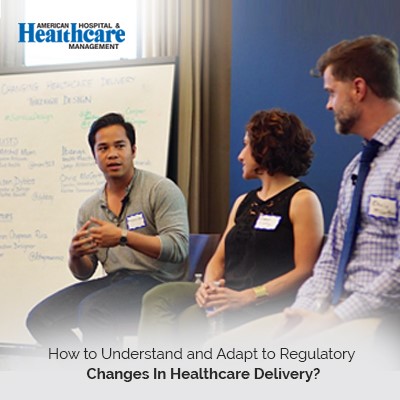This comprehensive guide navigates the dynamic realm of healthcare regulation, offering actionable strategies for understanding and adapting to evolving standards. From staying informed and building compliance teams to leveraging technology and fostering collaboration, healthcare professionals gain insights to ensure compliance, quality patient care, and seamless integration of regulatory changes.

In the ever-evolving landscape of healthcare, staying ahead of regulatory changes is paramount for organizations striving to provide quality patient care while maintaining compliance with shifting standards. The intricacies of healthcare delivery regulations can be complex and multifaceted, requiring a proactive and adaptive approach from healthcare professionals and organizations alike. This article aims to guide healthcare stakeholders through the process of understanding, embracing, and effectively adapting to regulatory changes in the healthcare delivery domain.
As governments and regulatory bodies continuously refine and introduce new policies, healthcare providers must navigate a maze of requirements to ensure they not only meet standards but also thrive in an environment that prioritizes patient safety, data security, and efficient service delivery. From the inception of groundbreaking technologies to the refinement of established healthcare delivery models, each regulatory change brings both challenges and opportunities. In this guide, we will explore actionable strategies to empower healthcare professionals in comprehending, preparing for, and seamlessly integrating the latest regulatory shifts into their daily practices.
Whether you are a healthcare administrator, practitioner, or a part of the compliance team within a healthcare organization, this comprehensive guide aims to equip you with the knowledge and tools needed to navigate the complex waters of healthcare regulation. By fostering a culture of continuous learning, collaboration, and adaptability, healthcare professionals can not only meet regulatory requirements but also enhance the overall quality of healthcare delivery. Let us embark on a journey to unravel the intricacies of regulatory changes and chart a course toward a resilient and compliant healthcare future.
Understanding and adapting to regulatory changes in healthcare delivery is crucial for healthcare professionals, organizations, and stakeholders to ensure compliance and maintain the quality of patient care. Here are steps you can take to navigate regulatory changes effectively:
1. Stay Informed:
2. Build a Compliance Team:
3. Conduct Regular Audits:
4. Collaborate with Regulatory Agencies:
5. Implement a Compliance Management System:
6. Educate Staff:
7. Network and Collaborate:
8. Adapt Policies and Procedures:
9. Utilize Consultants and Legal Experts:
10. Monitor Enforcement Trends:
11. Participate in Pilot Programs:
12. Evaluate Technology Solutions:
By proactively staying informed, fostering a culture of compliance, and leveraging resources both internally and externally, healthcare organizations can better understand and adapt to regulatory changes in healthcare delivery. Regularly reassess your organization's processes and strategies to ensure ongoing compliance with the dynamic regulatory environment in healthcare.